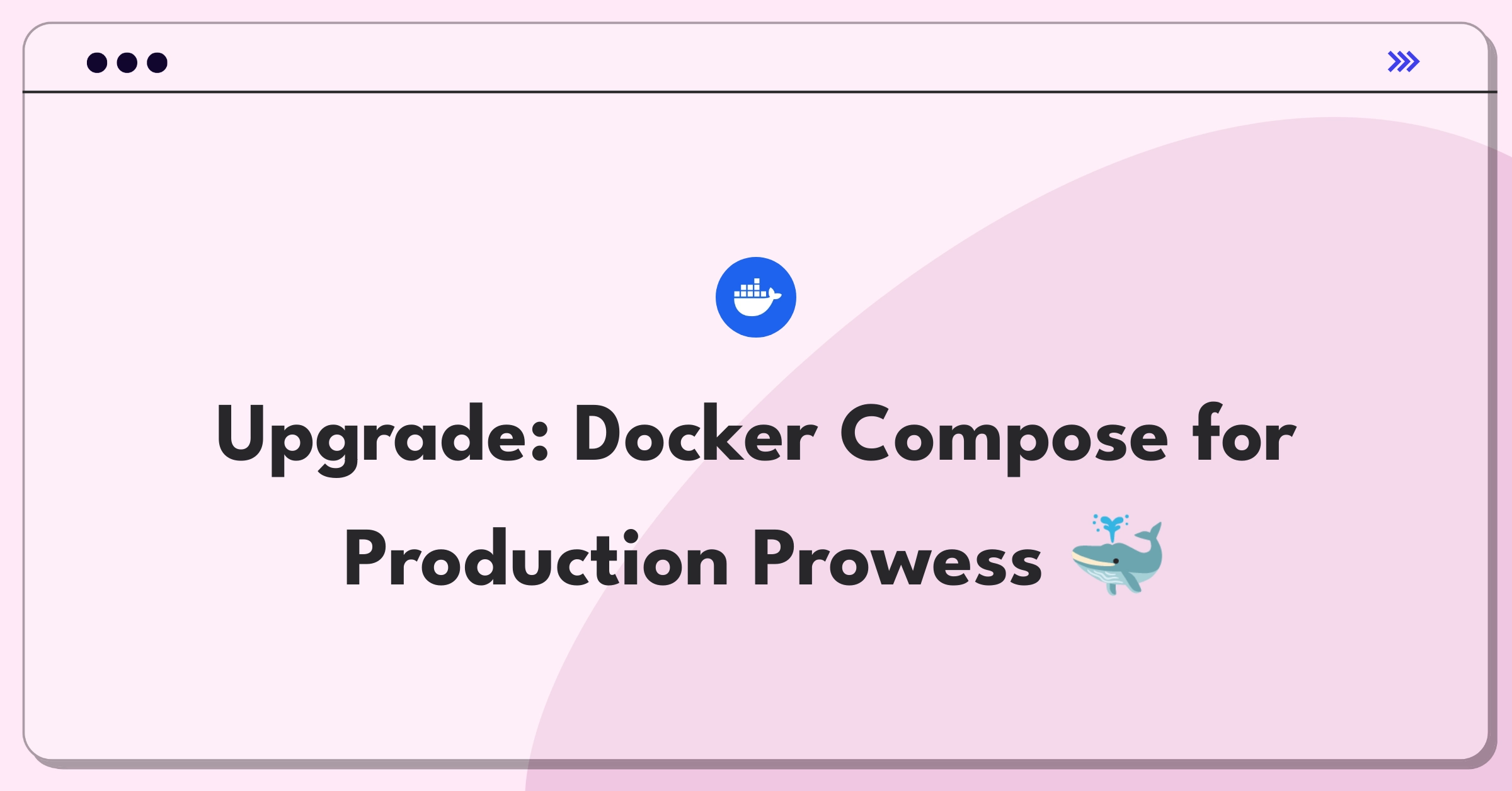Introduction
Docker Compose has been a game-changer for developers, simplifying the process of defining and running multi-container Docker applications. However, as containerization becomes more prevalent in production environments, there's a growing need for Compose to evolve and better support complex, production-grade container orchestration. Let's explore how Docker might extend its Compose specification to meet these emerging needs.
Step 1
Clarifying Questions (5 mins)
Why it matters: This helps determine if we should focus on bridging the gap with more complex orchestration tools or doubling down on Compose's simplicity. Expected answer: Compose is primarily used for development and testing, with limited production use. Impact on approach: Would focus on extending production capabilities while maintaining simplicity.
Why it matters: Identifies key areas for improvement and helps prioritize feature development. Expected answer: Users struggle with scaling, service discovery, and advanced networking in production. Impact on approach: Would prioritize features that address these specific pain points.
Why it matters: Ensures our improvements align with Docker's overall direction and complement other offerings. Expected answer: Docker aims to provide a seamless experience from development to production, with Compose playing a central role. Impact on approach: Would focus on integrations and features that support this end-to-end vision.
Why it matters: Helps identify areas where Compose can differentiate itself and address unmet needs. Expected answer: Users appreciate Compose's simplicity but want more advanced features for production use. Impact on approach: Would balance adding powerful features with maintaining Compose's user-friendly nature.
Tip
At this point, you can ask interviewer to take a 1-minute break to organize your thoughts before diving into the next step.
Subscribe to access the full answer
Monthly Plan
The perfect plan for PMs who are in the final leg of their interview preparation
$99.00 /month
- Access to 8,000+ PM Questions
- 10 AI resume reviews credits
- Access to company guides
- Basic email support
- Access to community Q&A
Yearly Plan
The ultimate plan for aspiring PMs, SPMs and those preparing for big-tech
- Everything in monthly plan
- Priority queue for AI resume review
- Monthly/Weekly newsletters
- Access to premium features
- Priority response to requested question


.png)